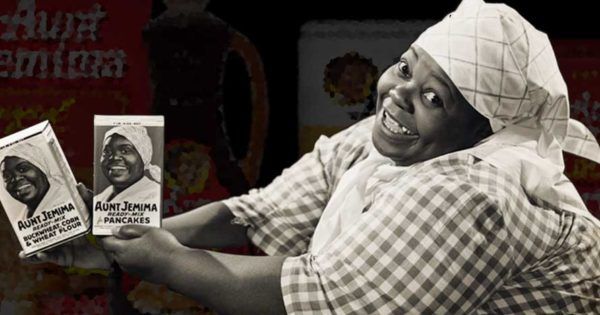
The recent rebranding of Aunt Jemima has caused a great deal of outrage among those who have a deep connection to the brand. One person who is particularly upset about this decision is Larnell Evans Sr., the great-grandson of the original Aunt Jemima, Anna Short Harrington. He believes that cancel culture is ignoring the rich heritage that his great-grandmother represents.
The story of Aunt Jemima dates back to 1893, when Nancy Green, a former slave, introduced the world to this beloved character at the Chicago World’s Fair. Green, who worked as a cook, delighted fairgoers with her delicious pancakes while wearing her characteristic apron and headscarf. After Green passed away in 1923, Anna Short Harrington, Evans’ grandmother, took over as Aunt Jemima and continued to bring joy to people’s breakfast tables.
Harrington’s fame grew as she traveled across the country, representing Quaker Foods and serving her delightful pancakes to people from all walks of life. For 20 years, she dedicated herself to the Quaker Oats Company, becoming a household name and making a positive impact on countless individuals.
Evans strongly believes that Quaker Foods’ recent actions fail to recognize the contributions not only of Harrington, but also of Green and the legacy of slavery. He points out that the company profited from the likenesses of these remarkable women and the images associated with slavery, yet now their historical significance seems to be dismissed.
It is important to understand the impact that Aunt Jemima had on the lives of both white and black individuals. While Quaker Foods gained substantial profits from these breakfast icons, they now appear to disregard their historical importance. Evans challenges us to reflect on this unfair treatment and the need for restitution for the suffering endured.
Although Quaker Foods has made its stance clear on the removal of the Aunt Jemima branding and artwork, it is crucial to recognize the emotions connected to this decision. The legacy of Aunt Jemima should not be forgotten, as it represents an important chapter in our history. Evans brings an essential perspective to the conversation, urging us to consider the impact of erasing our shared past.
As we move forward, let us strive for understanding and empathy, acknowledging the importance of heritage and the need to recognize the contributions made by individuals like Aunt Jemima.





